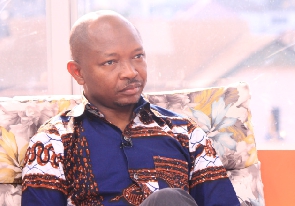Former Kumbungu MP, Ras Mubarak, has taken his advocacy against ‘vote buying and monetization of Ghana’s politics’ a notch higher by making a statement against the phenomenon on the floor of Parliament on Tuesday, MyNewsGh.com reports.
He is advocating for “radical changes” and laws that would “compel politicians to disclose their source of funding and put a cap on how much individual Ghanaians running for elections can take by way of donations from individuals and institutions”.
Moments after his defeat by a wide margin to University for Development Studies (UDS) Lecturer, Dr. Hamza Adam, Ras Mubarak alleged that the winner had been assisted by a businessman, one Hamza Abdulaziz a.k.a Hamza Tanko whom he alleged doled out some GH¢500,000 to the delegates to make sure he was unseated.
He described as worrying the growing monetization of Ghana’s politics and warned that its rippling effect could be dire for the country if it is not looked at urgently, MyNewsGh.com reported in August.
Dr Hamza Adam polled 401 as against the incumbent’s 273 and 81 votes for the third candidate Baba Abdulai.
Right after the end of poll, Ras Mubarak gave indication that he had reported a case of vote buying in his constituency to the Bureau of National Investigations (BNI), owing to the wanton display of cash and profligate spending that was exhibited on the day.
He told Accra-based Okay FM in an interview monitored by Mynewsgh.com that, he had “incontrovertible evidence” to prove that, his opponent, was aided with an amount of GH¢500,000 by the said businessman, but would not discuss the details in the media.
“If we do not pay urgent attention to the issues of vote buying that is creeping into our politics, soon we will have drug dealers and terrorists choosing our MPs and even the president with their money”, a situation he said ‘would undermine the integrity of our democracy”.
On the floor of Parliament on Tuesday, October 29, 2019, Mr Mubarak said, “I want to see some radical changes, starting with political parties and politicians committing and acting in a manner that eliminates corruption from our politics by way of opening up the way and manner we elect our constituency, our regional, our national executives, our flagbearers and parliamentary candidates”.
He also wants “all registered members of any political party within a geographical location to have a say in who gets elected as parliamentary candidates or constituency executives”; that way, Ras argues, “we should be doing the nation a lot of good”.
General News of Thursday, 31 October 2019
Source: mynewsgh.com

















